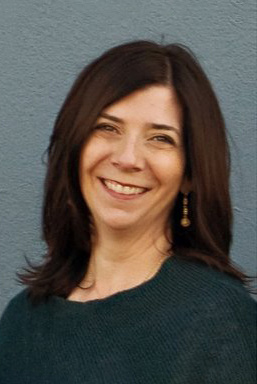Main navigation
Amanda Acevedo

Graduation Year: 1996
Major(s): Physics, minor in Computer Science
Hometown: Burr Ridge, IL
What was the most important thing you learned?
I would say the most impactful thing I learned was how critically important is it is to put the knowledge gained in the classroom into practical use to gain a real understanding of what it takes in terms of time, collaboration and energy to investigate and study physics. Learning this was a direct result of opportunities I was afforded while a student in the Department of Physics and Astronomy. I was able to work in one of the labs within the department which was an excellent introduction into the work that is done to prepare for a physics experiment. I was also offered an opportunity to work as a University of Iowa intern at Fermilab during the summers in support of the SELEX experiment. This is where I got a great peek into the vision and dedication and years and years of work that it takes to build the equipment, the analysis tools, to successfully collaborate with international partners, and to execute a high-energy physics experiment. This was the critical, eye-opening experience that showed me how many different ways there were to be involved in physics. This is the experience that led me to the career I have today. I quickly grew to enjoy software development by helping to build analysis programs that would be used to analyze data from the experiment.
I learned that not only was the discipline of physics endlessly interesting but that it was much, much bigger than I really could have imagined without the experiences the department gave me to work in the field while I was a student. Most importantly I learned that there were places for all different sorts of expertise and levels of education for teammates to have an impact.
Where are you now and how have you applied what you learned?
After graduation, I worked at Argonne National Laboratory (ANL) as a software developer. I wrote control systems software for the ATLAS accelerator at ANL. I learned a lot there and was able to further mature my software skills. From there I applied for a position to develop software for the manned spaceflight program at Johnson Space Center. I moved to Houston and have been here ever since. After moving to Houston, I quickly realized how valuable it was to know how to develop software and have a physics background. I have worked on many different vehicles and programs over the years with the bulk of my experience centered around software development in support of Guidance Navigation and Control systems for spacecraft. I have supported NASA as a contractor and was offered a civil servant position with NASA in 2004. I worked at NASA as a civil servant for 10 years. I have worked on the Space Shuttle program, the X-38 project, the AERCam project, the Orion program, the Constellation program, and now Gateway. In 2016 I decided to leave NASA and join a Houston startup that had a vision to bring Aerospace expertise to the medical and energy sectors here in Houston. After almost three years there I knew it was time to break off on my own and start my own software engineering company and, Vedo Systems was born.
Today, Vedo Systems provides software engineering services to (1) Lockheed Martin, building and testing their Orion spacecraft flight software, (2) NASA, developing and certifying Gateway vehicle flight software as well as leading software systems engineering tasks for the Gateway program, (3) Axiom Space, providing systems engineering support, and (4) Superior QC, performing software development and testing for their oil and gas software applications.
I have found that having a physics degree combined with software development skills has been absolutely invaluable. The success I’ve had working integration issues in particular is a direct result of having a physics background. I am able to discuss technical issues across disciplines and bridge the divide between teams. Because of how valuable I know this has been, I center Vedo Systems recruiting activities around finding candidates with similar cross-discipline skills. I know this is the reason we have had great success and growth.